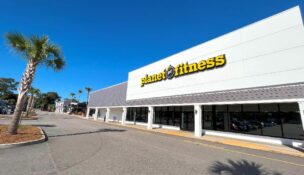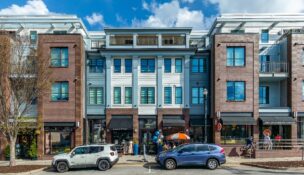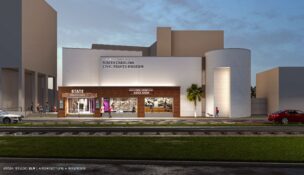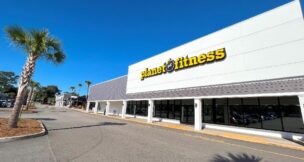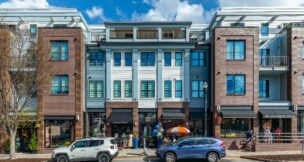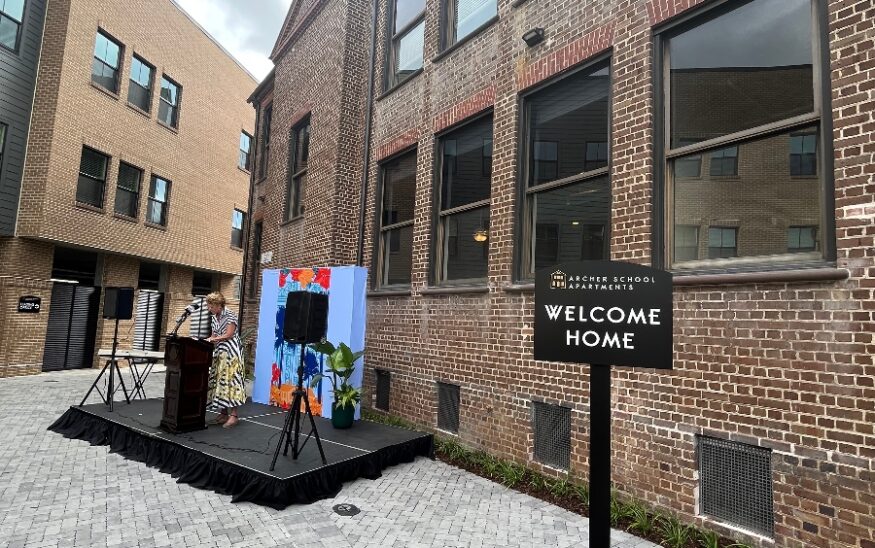
Restored by the community, for the community, the historic Henry P. Archer School has been revitalized in Charleston’s eastside as affordable housing apartments for seniors. (Photo/Hollie Moore)

Restored by the community, for the community, the historic Henry P. Archer School has been revitalized in Charleston’s eastside as affordable housing apartments for seniors. (Photo/Hollie Moore)
$43M affordable housing complex opens in Charleston’s eastside
Hollie Moore //June 18, 2024//
Restored by the community, for the community, the historic Henry P. Archer School has been revitalized in Charleston’s eastside as affordable housing apartments for seniors.
The 90-year-old building was originally constructed in 1934 as an African-American school during segregation. Through the $43 million project, the historical school is now accompanied by two additional buildings to create a complex of 89 one and two-bedroom apartment units, according to the Humanities Foundation.
The new apartment building, located at 226 Nassau St., was created as a hope to continue the growth of affordable housing, according to the Humanities Foundation. The units will be available to citizens over 55-years-old and with incomes below 80% of the area median income, which is about $50,000.
“We have transformed the historic Henry P. Archer School into more than just a place to live. It is a testament to the rich history of the eastside community. A place steeped in history of resilience, creativity and community spirit,” Tracy Doran, the Humanities Foundation president, said during a recent ribbon-cutting event at the site.
The Humanities Foundation will be offering services such as telehealth, food distribution, private transportation and social activities. According to the foundation’s website, 60% of the AMI units have been leased, leaving roughly 35 units still available.
“These are incredible projects; The Lewis Homes, the Archer School,” Mayor William Cogswell said at the event. “We need thousands more if we’re going to really protect what we all know and love about this community.”
For some of the residents, it isn’t their first time in the building. Many of the prior students at the school will be living in the new units.
The Humanities Foundation has created a “Portraits of Promise” showcase in the Archer School hallways of nearly 40 alumni portraits. The showcase is aimed to honor the prior students and “showcase the diverse and inspiring journeys of those who walked the halls of the Archer School,” Doran said.
Beginning its journey over three years ago, the project was led by the Humanities Foundation and James Doran Co.
“This is an example of what happens when we all come together, and we work together,” Herb Partlow, chairman of the board of commissioners, said. “There are many, many entities involved to bring something like this to fruition.”
In addition to the Humanities Foundation and JDC, preservation of the historical landscape was created by DesignWorks and structure was overseen by Martin Riley Associates and Bello Garris Architects.
Trident Contruction created an interior of 20-foot ceilings, exposed brick walls, large windows and hardwood floors, while maintaining the original exterior, according to the Humanities Foundation. The structure also ensures reduced utility bills and security for residents.
“The cost factor is great. People don’t understand it, but it costs a lot to try to do affordable housing and the city of Charleston,” Charleston Dist. 4 Councilmember Robert Mitchell said. “We as a community can do a lot, we have to come together and work together.”
n






